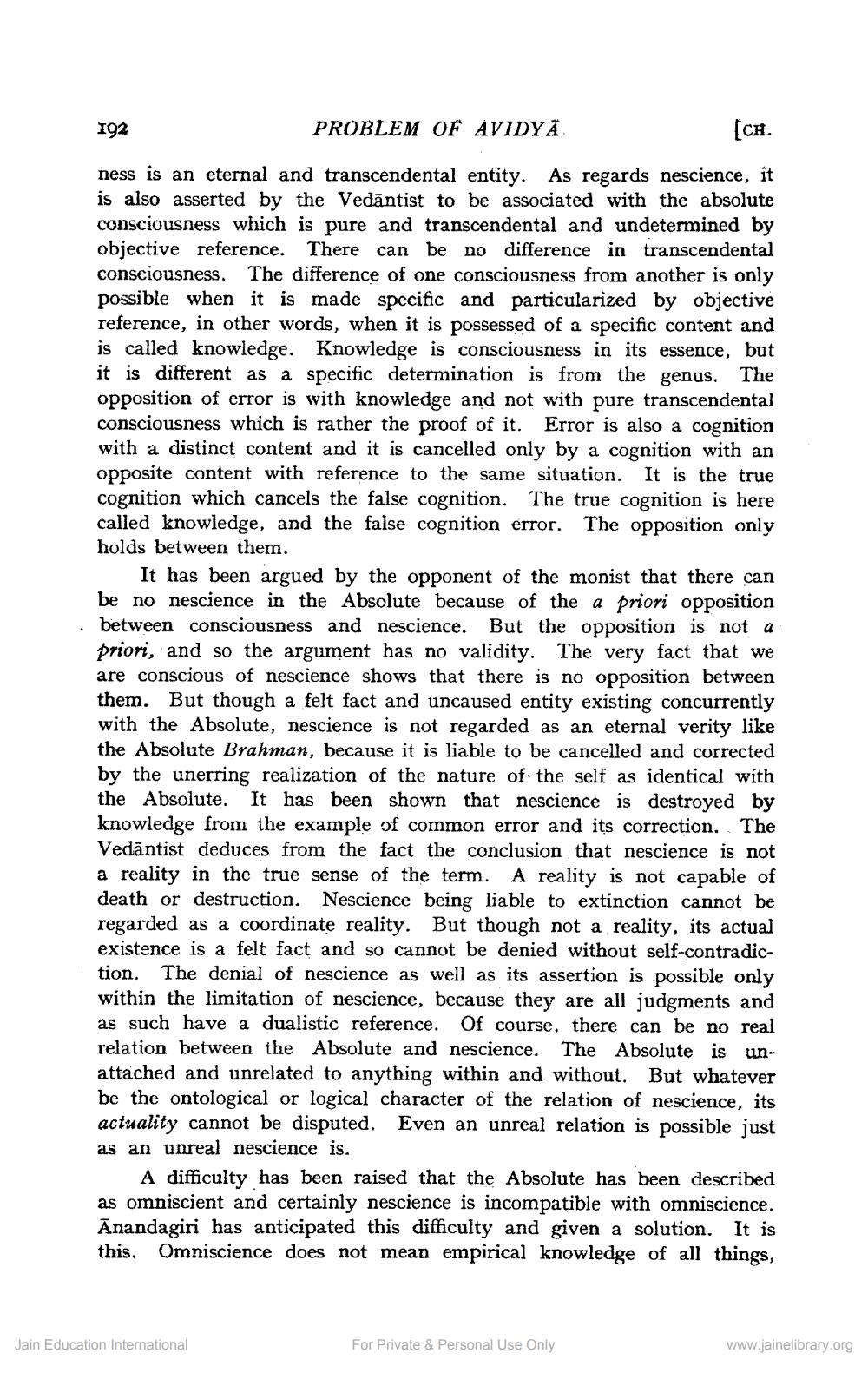________________
PROBLEM OF AVIDYA
[CH.
ness is an eternal and transcendental entity. As regards nescience, it is also asserted by the Vedantist to be associated with the absolute consciousness which is pure and transcendental and undetermined by objective reference. There can be no difference in transcendental consciousness. The difference of one consciousness from another is only possible when it is made specific and particularized by objective reference, in other words, when it is possessed of a specific content and is called knowledge. Knowledge is consciousness in its essence, but it is different as a specific determination is from the genus. The opposition of error is with knowledge and not with pure transcendental consciousness which is rather the proof of it. Error is also a cognition with a distinct content and it is cancelled only by a cognition with an opposite content with reference to the same situation. It is the true cognition which cancels the false cognition. The true cognition is here called knowledge, and the false cognition error. The opposition only holds between them.
192
It has been argued by the opponent of the monist that there can be no nescience in the Absolute because of the a priori opposition between consciousness and nescience. But the opposition is not a priori, and so the argument has no validity. The very fact that we are conscious of nescience shows that there is no opposition between them. But though a felt fact and uncaused entity existing concurrently with the Absolute, nescience is not regarded as an eternal verity like the Absolute Brahman, because it is liable to be cancelled and corrected by the unerring realization of the nature of the self as identical with the Absolute. It has been shown that nescience is destroyed by knowledge from the example of common error and its correction. The Vedäntist deduces from the fact the conclusion that nescience is not a reality in the true sense of the term. A reality is not capable of death or destruction. Nescience being liable to extinction cannot be regarded as a coordinate reality. But though not a reality, its actual existence is a felt fact and so cannot be denied without self-contradiction. The denial of nescience as well as its assertion is possible only within the limitation of nescience, because they are all judgments and as such have a dualistic reference. Of course, there can be no real relation between the Absolute and nescience. The Absolute is unattached and unrelated to anything within and without. But whatever be the ontological or logical character of the relation of nescience, its actuality cannot be disputed. Even an unreal relation is possible just as an unreal nescience is.
A difficulty has been raised that the Absolute has been described as omniscient and certainly nescience is incompatible with omniscience. Anandagiri has anticipated this difficulty and given a solution. It is this. Omniscience does not mean empirical knowledge of all things,
Jain Education International
For Private & Personal Use Only
www.jainelibrary.org




